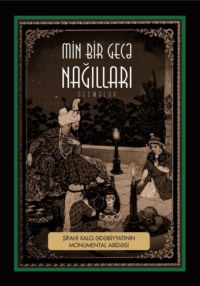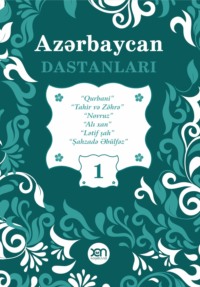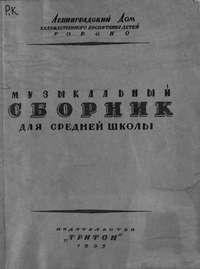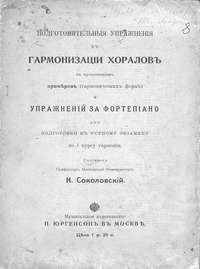 полная версия
полная версияA plain and literal translation of the Arabian nights entertainments, now entituled The Book of the Thousand Nights and a Night, Volume 4 (of 17)
She said, It hath reached me, O auspicious King, that the Governor came in to his wife, who spoke to him as she had been taught and made him swear the divorce-oath before she would yield to his wishes. He lay with her that night and, when morning dawned, after he had made the Ghusl-ablution and prayed the dawn-prayer, he repaired to the prison and said, “O Ahmad Kamakim, O thou arch-thief, dost thou repent of thy works?”; whereto he replied, “I do indeed repent and turn to Allah and say with heart and tongue: – I ask pardon of Allah.” So the Governor took him out of jail and carried him to the Court (he being still in bilboes) and, approaching the Caliph kissed ground before him. Quoth the King, “O Emir Khalid, what seekest thou?”; whereupon he brought forward Ahmad Kamakim, shuffling and tripping in his fetters, and the Caliph said to him, “What! art thou yet alive, O Kamakim?” He replied, “O Commander of the Faithful, the miserable are long-lived.” Quoth the Caliph to the Emir, “Why hast thou brought him hither?”; and quoth he, “O Commander of the Faithful, he hath a poor old mother cut off from the world who hath none but this son and she hath had recourse to thy slave, imploring him to intercede with thee to strike off his chains, for he repenteth of his evil courses; and to make him Captain of the Watch as before.” The Caliph asked Ahmad Kamakim, “Dost thou repent of thy sins?” “I do indeed repent me to Allah, O Commander of the Faithful,” answered he; whereupon the Caliph called for the blacksmith and made him strike off his irons on the corpse-washer’s bench.92 Moreover, he restored him to his former office and charged him to walk in the ways of godliness and righteousness. So he kissed the Caliph’s hands and, being invested with the uniform of Captain of the Watch, he went forth, whilst they made proclamation of his appointment. Now for a long time he abode in the exercise of his office, till one day his mother went in to the Governor’s wife, who said to her, “Praised be Allah who hath delivered thy son from prison and restored him to health and safety! But why dost thou not bid him contrive some trick to get the girl Jessamine for son Habzalam Bazazah?” “That will I,” answered she and, going out from her, repaired to her son. She found him drunk with wine and said to him, “O my son, no one caused thy release from jail but the wife of the Governor, and she would have thee find some means to slay Ala al-Din Abu al-Shamat and get his slave-girl Jessamine for her son Habzalam Bazazah.” He answered, “That will be the easiest of things; and I must needs set about it this very night.” Now this was the first night of the new month, and it was the custom of the Caliph to spend that night with the Lady Zubaydah, for the setting free of a slave-girl or a Mameluke or something of the sort. Moreover, on such occasions he used to doff his royal habit, together with his rosary and dagger-sword and royal signet, and set them all upon a chair in the sitting-saloon: and he had also a golden lanthorn, adorned with three jewels strung on a wire of gold, by which he set great store; and he would commit all these things to the charge of the eunuchry, whilst he went into the Lady Zubaydah’s apartment. So arch-thief Ahmad Kamakim waited till midnight, when Canopus shone bright, and all creatures to sleep were dight whilst the Creator veiled them with the veil of night. Then he took his drawn sword in his right and his grappling-hook in his left and, repairing to the Caliph’s sitting-saloon planted his scaling ladder and cast his grapnel on to the side of the terrace-roof; then, raising the trap-door, let himself down into the saloon, where he found the eunuchs asleep. He drugged them with hemp-fumes;93 and, taking the Caliph’s dress, dagger, rosary, kerchief, signet-ring and the lanthorn whereupon were the pearls, returned whence he came and betook himself to the house of Ala al-Din, who had that night celebrated his wedding festivities with Jessamine and had gone in unto her and gotten her with child. So arch-thief Ahmad Kamakim climbed over into his saloon and, raising one of the marble slabs from the sunken part of the floor,94 dug a hole under it and laid the stolen things therein, all save the lanthorn, which he kept for himself. Then he plastered down the marble slab as it before was, and returning whence he came, went back to his own house, saying, “I will now tackle my drink and set this lanthorn before me and quaff the cup to its light.”95 Now as soon as it was dawn of day, the Caliph went out into the sitting-chamber; and, seeing the eunuchs drugged with hemp, aroused them. Then he put his hand to the chair and found neither dress nor signet nor rosary nor dagger-sword nor kerchief nor lanthorn; whereat he was exceeding wroth and donning the dress of anger, which was a scarlet suit,96 sat down in the Divan. So the Wazir Ja’afar came forward and kissing the ground before him, said, “Allah avert all evil from the Commander of the Faithful!” Answered the Caliph, “O Wazir, the evil is passing great!” Ja’afar asked, “What has happened?” so he told him what had occurred; and, behold, the Chief of Police appeared with Ahmad Kamakim the robber at his stirrup, when he found the Commander of the Faithful sore enraged. As soon as the Caliph saw him, he said to him, “O Emir Khalid, how goes Baghdad?” And he answered, “Safe and secure.” Cried he, “Thou liest!” “How so, O Prince of True Believers?” asked the Emir. So he told him the case and added, “I charge thee to bring me back all the stolen things.” Replied the Emir, “O Commander of the Faithful, the vinegar worm is of and in the vinegar, and no stranger can get at this place.”97 But the Caliph said, “Except thou bring me these things, I will put thee to death.” Quoth he, “Ere thou slay me, slay Ahmad Kamakim, for none should know the robber and the traitor but the Captain of the Watch.” Then came forward Ahmad Kamakim and said to the Caliph, “Accept my intercession for the Chief of Police, and I will be responsible to thee for the thief and will track his trail till I find him; but give me two Kazis and two Assessors for he who did this thing feareth thee not, nor doth he fear the Governor nor any other.” Answered the Caliph, “Thou shalt have what thou wantest; but let search be made first in my palace and then in those of the Wazir and the Chief of the Sixty.” Rejoined Ahmad Kamakim, “Thou sayest well, O Commander of the Faithful; belike the man that did this ill-deed be one who hath been reared in the King’s houshold or in that of one of his officers.” Cried the Caliph, “As my head liveth, whosoever shall have done the deed I will assuredly put him to death, be it mine own son!” Then Ahmad Kamakim received a written warrant to enter and perforce search the houses; – And Shahrazad perceived the dawn of day and ceased to say her permitted say.
Now when it was the Two Hundred and Sixty-fourth Night,She said, It hath reached me, O auspicious King, that Ahmad Kamakim got what he wanted, and received a written warrant to enter and perforce search the houses; so he fared forth, taking in his hand a rod98 made of bronze and copper, iron and steel, of each three equal parts. He first searched the palace of the Caliph, then that of the Wazir Ja’afar; after which he went the round of the houses of the Chamberlains and the Viceroys till he came to that of Ala al-Din. Now when the Chief of the Sixty heard the clamour before his house, he left his wife Jessamine and went down and, opening the door, found the Master of Police without in the midst of a tumultuous crowd. So he said, “What is the matter, O Emir Khalid?” Thereupon the Chief told him the case and Ala al-Din said, “Enter my house and search it.” The Governor replied, “Pardon, O my lord; thou art a man in whom trust is reposed and Allah forfend that the trusty turn traitor!” Quoth Ala al-Din, “There is no help for it but that my house be searched.” So the Chief of Police entered, attended by the Kazi and his Assessors; whereupon Ahmad Kamakim went straight to the depressed floor of the saloon and came to the slab, under which he had buried the stolen goods and let the rod fall upon it with such violence that the marble broke in sunder and behold something glittered underneath. Then said he, “Bismillah; in the name of Allah! Mashallah; whatso Allah willeth! By the blessing of our coming a hoard hath been hit upon; wait while we go down into this hiding-place and see what is therein.” So the Kazi and Assessors looked into the hole and finding there the stolen goods, drew up a statement99 of how they had discovered them in Ala al-Din’s house, to which they set their seals. Then, they bade seize upon Ala al-Din and took his turband from his head, and officially registered all his monies and effects which were in the mansion. Meanwhile, arch-thief Ahmad Kamakim laid hands on Jessamine, who was with child by Ala al-Din, and committed her to his mother, saying, “Deliver her to Khatun, the Governor’s lady:” so the old woman took her and carried her to the wife of the Master of Police. Now as soon as Habzalam Bazazah saw her, health and heart returned to him and he arose without stay or delay and joyed with exceeding joy and would have drawn near her; but she pluckt a dagger from her girdle and said, “Keep off from me, or I will kill thee and kill myself after.” Exclaimed his mother, “O strumpet, let my son have his will of thee!” But Jessamine answered “O bitch, by what law is it lawful for a woman to marry two men; and how shall the dog be admitted to the place of the lion?” With this, the ugly youth’s love-longing redoubled and he sickened for yearning and unfulfilled desire; and refusing food returned to his pillow. Then said his mother to her, “O harlot, how canst thou make me thus to sorrow for my son? Needs must I punish thee with torture; and as for Ala al-Din, he will assuredly be hanged.” “And I will die for love of him,” answered Jessamine. Then the Governor’s wife arose and stripped her of her jewels and silken raiment and, clothing her in petticoat-trousers of sack-cloth and a shift of hair-cloth, sent her down into the kitchen and made her a scullery-wench, saying, “The reward for thy constancy shall be to break up fire-wood and peel onions and set fire under the cooking-pots.” Quoth she, “I am willing to suffer all manner of hardships and servitude, but I will not suffer the sight of thy son.” However, Allah inclined the hearts of the slave-girls to her and they used to do her service in the kitchen. Such was the case with Jessamine; but as regards Ala al-Din they carried him, together with the stolen goods, to the Divan where the Caliph still sat upon his throne. And behold, the King looked upon his effects and said, “Where did ye find them?” They replied, “In the very middle of the house belonging to Ala al-Din Abu al-Shamat;” whereat the Caliph was filled with wrath and took the things, but found not the lanthorn among them and said, “O Ala al-Din, where is the lanthorn?” He answered “I stole it not; I know naught of it; I never saw it; I can give no information about it!” Said the Caliph, “O traitor, how cometh it that I brought thee near unto me and thou hast cast me out afar, and I trusted in thee and thou betrayest me?” And he commanded to hang him. So the Chief of Police took him and went down with him into the city, whilst the crier preceded them proclaiming aloud and saying, “This is the reward and the least of the reward he shall receive who doth treason against the Caliphs of True Belief!” And the folk flocked to the place where the gallows stood. Thus far concerning him; but as regards Ahmad al-Danaf, Ala al-Din’s adopted father, he was sitting making merry with his followers in a garden, and carousing and pleasuring when lo! in came one of the water-carriers of the Divan and, kissing the hand of Ahmad al-Danaf, said to him, “O Captain Ahmad, O Danaf! thou sittest at thine ease with water flowing at thy feet,100 and thou knowest not what hath happened.” Asked Ahmad, “What is it?” and the other answered, “They have gone down to the gallows with thy son Ala al-Din, adopted by a covenant before Allah!” Quoth Ahmad, “What is the remedy here, O Hasan Shuuman, and what sayst thou of this?” He replied, “Assuredly Ala al-Din is innocent and this blame hath come to him from some one enemy.”101 Quoth Ahmad, “What counsellest thou?” and Hasan said, “We must rescue him, Inshallah!” Then he went to the jail and said to the gaolor, “Give us some one who deserveth death.” So he gave him one that was likest of men to Ala al-Din Abu al-Shamat; and they covered his head and carried him to the place of execution between Ahmad al-Danaf and Ali al-Zaybak of Cairo.102 Now they had brought Ala al-Din to the gibbet, to hang him, but Ahmad al-Danaf came forward and set his foot on that of the hangman, who said, “Give me room to do my duty.” He replied, “O accursed, take this man and hang him in Ala al-Din’s stead; for he is innocent and we will ransom him with this fellow, even as Abraham ransomed Ishmael with the ram.”103 So the hangman seized the man and hanged him in lieu of Ala al-Din; whereupon Ahmad and Ali took Ala al-Din and carried him to Ahmad’s quarters and, when there, Ala al-Din turned to him and said, “O my sire and chief, Allah requite thee with the best of good!” Quoth he, “O Ala al-Din” – And Shahrazad perceived the dawn of day and ceased saying her permitted say.
Now when it was the Two Hundred and Sixty-fifth Night,She said, It hath reached me, O auspicious King, that Calamity Ahmad cried, “O Ala al-Din, what is this deed thou hast done? The mercy of Allah be on him who said: – Whoso trusteth thee betray him not, e’en if thou be a traitor. Now the Caliph set thee in high place about him and styled thee ‘Trusty’ and ‘Faithful’; how then couldst thou deal thus with him and steal his goods?” “By the Most Great Name, O my father and chief,” replied Ala al-Din, “I had no hand in this, nor did I such deed, nor know I who did it.” Quoth Ahmad, “Of a surety none did this but a manifest enemy and whoso doth aught shall be requited for his deed; but, O Ala al-Din, thou canst sojourn no longer in Baghdad, for Kings, O my son, may not pass from one thing to another, and when they go in quest of a man, ah! longsome is his travail.” “Whither shall I go, O my chief?” asked Ala al-Din; and he answered, “O my son, I will bring thee to Alexandria, for it is a blessed place; its threshold is green and its sojourn is agreeable.” And Ala al-Din rejoined, “I hear and I obey, O my chief.” So Ahmad said to Hasan Shuuman, “Be mindful and, when the Caliph asketh for me, say: – He is gone touring about the provinces.” Then, taking Ala al-Din, he went forth of Baghdad and stayed not going till they came to the outlying vineyards and gardens, where they met two Jews of the Caliph’s tax-gatherers, riding on mules. Quoth Ahmad Al-Danaf to these, “Give me the black-mail;”104 and quoth they, “Why should we pay thee black-mail?” whereto he replied, “Because I am the watchman of this valley.” So they gave him each an hundred gold pieces, after which he slew them and took their mules, one of which he mounted, whilst Ala al-Din bestrode the other. Then they rode on till they came to the city of Ayás105 and put up their beasts for the night at the Khan. And when morning dawned, Ala al-Din sold his own mule and committed that of Ahmad to the charge of the doorkeeper of the caravanserai, after which they took ship from Ayas port and sailed to Alexandria. Here they landed and walked up to the bazar and behold, there was a broker crying a shop and a chamber behind it for nine hundred and fifty dinars. Upon this Ala al-Din bid a thousand which the broker accepted, for the premises belonged to the Treasury; and the seller handed over to him the keys and the buyer opened the shop and found the inner parlour furnished with carpets and cushions. Moreover, he found there a store-room full of sails and masts, cordage and seamen’s chests, bags of beads and cowrie106-shells, stirrups, battle-axes, maces, knives, scissors and such matters, for the last owner of the shop had been a dealer in second-hand goods.107 So he took his seat in the shop and Ahmad al-Danaf said to him, “O my son, the shop and the room and that which is therein are become thine; so tarry thou here and buy and sell; and repine not at thy lot for Almighty Allah blesseth trade.” After this he abode with him three days and on the fourth he took leave of him, saying, “Abide here till I go back and bring thee the Caliph’s pardon and learn who hath played thee this trick.” Then he shipped for Ayas, where he took the mule from the inn and, returning to Baghdad met Pestilence Hasan and his followers, to whom said he, “Hath the Caliph asked after me?”; and he replied, “No, nor hast thou come to his thought.” So he resumed his service about the Caliph’s person and set himself to sniff about for news of Ala al-Din’s case, till one day he heard the Caliph say to the Wazir, “See, O Ja’afar, how Ala al-Din dealt with me!” Replied the Minister, “O Commander of the Faithful, thou hast requited him with hanging and hath he not met with his reward?” Quoth he, “O Wazir, I have a mind to go down and see him hanging;” and the Wazir answered, “Do what thou wilt, O Commander of the Faithful.” So the Caliph, accompanied by Ja’afar, went down to the place of execution and, raising his eyes, saw the hanged man to be other than Ala al-Din Abu al-Shamat, surnamed the Trusty, and said, “O Wazir, this is not Ala al-Din!” “How knowest thou that it is not he?” asked the Minister, and the Caliph answered, “Ala al-Din was short and this one is tall.” Quoth Ja’afar, “Hanging stretcheth.” Quoth the Caliph, “Ala al-Din was fair and this one’s face is black.” Said Ja’afar, “Knowest thou not, O Commander of the Faithful, that death is followed by blackness?” Then the Caliph bade take down the body from the gallows-tree and they found the names of the two Shaykhs, Abu Bakr and Omar, written on its heels;108 whereupon cried the Caliph, “O Wazir, Ala al-Din was a Sunnite, and this fellow is a Rejecter, a Shi’ah.” He answered, “Glory be to Allah who knoweth the hidden things, while we know not whether this was Ala al-Din or other than he.” Then the Caliph bade bury the body and they buried it; and Ala al-Din was forgotten as though he never had been. Such was his case; but as regards Habzalam Bazazah, the Emir Khalid’s son, he ceased not to languish for love and longing till he died and they joined him to the dust. And as for the young wife Jessamine, she accomplished the months of her pregnancy and, being taken with labour-pains, gave birth to a boy-child like unto the moon. And when her fellow slave-girls said to her, “What wilt thou name him?” she answered, “Were his father well he had named him; but now I will name him Aslán.”109 She gave him suck for two successive years, then weaned him, and he crawled and walked. Now it so came to pass that one day, whilst his mother was busied with the service of the kitchen, the boy went out and, seeing the stairs, mounted to the guest-chamber.110 And the Emir Khalid who was sitting there took him upon his lap and glorified his Lord for that which he had created and fashioned; then closely eyeing his face, the Governor saw that he was the likest of all creatures to Ala al-Din Abu al-Shamat. Presently, his mother Jessamine sought for him and finding him not, mounted to the guest-chamber, where she saw the Emir seated, with the child playing in his lap, for Allah had inclined his heart to the boy. And when the child espied his mother, he would have thrown himself upon her; but the Emir held him tight to his bosom and said to Jessamine, “Come hither, O damsel.” So she came to him, when he said to her, “Whose son is this?”; and she replied, “He is my son and the fruit of my vitals.” “And who is his father?” asked the Emir; and she answered, “His father was Ala al-Din Abu al-Shamat, but now he is become thy son.” Quoth Khalid, “In very sooth Ala al-Din was a traitor.” Quoth she, “Allah deliver him from treason! the Heavens forfend and forbid that the ‘Trusty’ should be a traitor!” Then said he, “When this boy shall grow up and reach man’s estate and say to thee: – Who is my father? say to him: – Thou art the son of the Emir Khalid, Governor and Chief of Police.” And she answered, “I hear and I obey.” Then he circumcised the boy and reared him with the goodliest rearing, and engaged for him a professor of law and religious science, and an expert pensman who taught him to read and write; so he read the Koran twice and learnt it by heart and he grew up, saying to the Emir, “O my father!” Moreover, the Governor used to go down with him to the tilting-ground and assemble horsemen and teach the lad the fashion of fight and fray, and the place to plant lance-thrust and sabre-stroke; so that by the time he was fourteen years old, he became a valiant wight and accomplished knight and gained the rank of Emir. Now it chanced one day that Aslan fell in with Ahmad Kamakim, the arch-thief, and accompanied him as cup-companion to the tavern111 and behold, Ahmad took out the jewelled lanthorn he had stolen from the Caliph and, setting it before him, pledged the wine cup to its light, till he became drunken. So Aslan said to him, “O Captain, give me this lanthorn;” but he replied, “I cannot give it to thee.” Asked Aslan, “Why not?”; and Ahmad answered, “Because lives have been lost for it.” “Whose life?” enquired Aslan; and Ahmad rejoined, “There came hither a man who was made Chief of the Sixty; he was named Ala al-Din Abu al-Shamat and he lost his life through this lanthorn.” Quoth Aslan, “And what was that story, and what brought about his death?” Quoth Ahmad Kamakim, “Thou hadst an elder brother by name Habzalam Bazazah, and when he reached the age of sixteen and was ripe for marriage, thy father would have bought him a slave-girl named Jessamine.” And he went on to tell him the whole story from first to last of Habzalam Bazazah’s illness and what befel Ala al-Din in his innocence. When Aslan heard this, he said in thought, “Haply this slave-girl was my mother Jessamine, and my father was none other than Ala al-Din Abu al-Shamat.” So the boy went out from him sorrowful, and met Calamity Ahmad, who at sight of him exclaimed, “Glory be to Him unto whom none is like!” Asked Hasan the Pestilence, “Whereat dost thou marvel, O my chief?” and Ahmad the Calamity replied, “At the make of yonder boy Aslan, for he is the likest of human creatures to Ala al-Din Abu al Shamat.” Then he called the lad and said to him, “O Aslan what is thy mother’s name?”; to which he replied, “She is called the damsel Jessamine;” and the other said, “Harkye, Aslan, be of good cheer and keep thine eyes cool and clear; for thy father was none other than Ala al-Din Abu al-Shamat: but, O my son, go thou in to thy mother and question her of thy father.” He said, “Hearkening and obedience,” and, going in to his mother put the question; whereupon quoth she, “Thy sire is the Emir Khalid!” “Not so,” rejoined he, “my father was none other than Ala al-Din Abu al-Shamat.” At this the mother wept and said, “Who acquainted thee with this, O my son?” And he answered “Ahmad Al-Danaf, Captain of the Guard.” So she told him the whole story, saying, “O my son, the True hath prevailed and the False hath failed:112 know that Ala al-Din Abu al-Shamat was indeed thy sire, but it was none save the Emir Khalid who reared thee and adopted thee as his son. And now, O my child, when thou seest Ahmad al-Danaf the captain, do thou say to him: – I conjure thee, by Allah, O my chief, take my blood-revenge on the murderer of my father Ala al-Din Abu al-Shamat!” So he went out from his mother – And Shahrazad perceived the dawn of day and ceased to say her permitted say.
Now when it was the Two Hundred and Sixty-sixth Night,She said, It hath reached me, O auspicious King, that Aslan went out from his mother and, betaking himself to Calamity Ahmad, kissed his hand. Quoth the captain, “What aileth thee, O Aslan?” and quoth he, “I know now for certain that my father was Ali al-Din Abu al-Shamat and I would have thee take my blood-revenge on his murderer.” He asked, “And who was thy father’s murderer?” whereto Aslan answered, “Ahmad Kamakim the Arch-thief.” “Who told thee this?” enquired he, and Aslan rejoined, “I saw in his hand the jewelled lanthorn which was lost with the rest of the Caliph’s gear, and I said to him: – Give me this lanthorn! but he refused, saying, Lives have been lost on account of this; and told me it was he who had broken into the palace and stolen the articles and deposited them in my father’s house.” Then said Ahmad al-Danaf, “When thou seest the Emir Khalid don his harness of war say to him: – Equip me like thyself and take me with thee. Then do thou go forth and perform some feat of prowess before the Commander of the Faithful, and he will say to thee: – Ask a boon of me, O Aslan! And do thou make answer, I ask of thee this boon, that thou take my blood-revenge on my father’s murderer. If he say, Thy father is yet alive and is the Emir Khalid, the Chief of the Police; answer thou: – My father was Ala al-Din Abu al-Shamat, and the Emir Khalid hath a claim upon me only as the foster-father who adopted me. Then tell him all that passed between thee and Ahmad Kamakim and say: – O Prince of True Believers, order him to be searched and I will bring the lanthorn forth from his bosom.” Thereupon said Aslan to him, “I hear and obey;” and, returning to the Emir Khalid, found him making ready to repair to the Caliph’s court and said to him, “I would fain have thee arm and harness me like thyself and take me with thee to the Divan.” So he equipped him and carried him thither. Then the Caliph sallied forth of Baghdad with his troops and they pitched tents and pavilions without the city; whereupon the host divided into two parties and forming ranks fell to playing Polo, one striking the ball with the mall, and another striking it back to him. Now there was among the troops a spy, who had been hired to slay the Caliph; so he took the ball and smiting it with the bat drove it straight at the Caliph’s face, when behold, Aslan fended it off and catching it drove it back at him who smote it, so that it struck him between the shoulders and he fell to the ground. The Caliph exclaimed, “Allah bless thee, O Aslan!” and they all dismounted and sat on chairs. Then the Caliph bade them bring the smiter of the ball before him and said, “Who tempted thee to do this thing and art thou friend or foe?” Quoth he, “I am thy foe and it was my purpose to kill thee.” Asked the Caliph, “And wherefore? Art not a Moslem?” Replied the spy; “No! I am a Rejecter.”113 So the Caliph bade them put him to death and said to Aslan, “Ask a boon of me.” Quoth he, “I ask of thee this boon, that thou take my blood-revenge on my father’s murderer.” He said, “Thy father is alive and there he stands on his two feet.” “And who is he?” asked Aslan; and the Caliph answered, “He is the Emir Khalid, Chief of Police.” Rejoined Aslan, “O Commander of the Faithful, he is no father of mine, save by right of fosterage; my father was none other than Ala al-Din Abu al-Shamat.” “Then thy father was a traitor,” cried the Caliph. “Allah forbid, O Commander of the Faithful,” rejoined Aslan, “that the ‘Trusty’ should be a traitor! But how did he betray thee?” Quoth the Caliph, “He stole my habit and what was therewith.” Aslan retorted, “O Commander of the Faithful, Allah forfend that my father should be a traitor! But, O my lord, when thy habit was lost and found didst thou likewise recover the lanthorn which was stolen from thee?” Answered the Caliph, “We never got it back;” and Aslan said, “I saw it in the hands of Ahmad Kamakim and begged it of him; but he refused to give it me, saying: – Lives have been lost on account of this. Then he told me of the sickness of Habzalam Bazazah, son of the Emir Khalid, by reason of his passion for the damsel Jessamine, and how he himself was released from bonds and that it was he who stole the habit and the lamp: so do thou, O Commander of the Faithful, take my blood-revenge for my father on him who murdered him.” At once the Caliph cried, “Seize ye Ahmad Kamakim!” and they seized him; whereupon he asked, “Where be the Captain, Ahmad al-Danaf?” And when he was summoned the Caliph bade him search Kamakim; so he put his hand into the thief’s bosom and pulled out the lanthorn. Said the Caliph, “Come hither, thou traitor: whence hadst thou this lanthorn?” and Kamakim replied, “I bought it, O Commander of the Faithful!” The Caliph rejoined, “Where didst thou buy it?” Then they beat him till he owned that he had stolen the lanthorn, the habit and the rest, and the Caliph said “What moved thee to do this thing O traitor, and ruin Ala al-Din Abu al-Shamat, the Trusty and Faithful?” Then he bade them lay hands on him and on the Chief of Police, but the Chief said, “O Commander of the Faithful, indeed I am unjustly treated; thou badest me hang him, and I had no knowledge of this trick, for the plot was contrived between the old woman and Ahmad Kamakim and my wife. I crave thine intercession,114 O Aslan.” So Aslan interceded for him with the Caliph, who said, “What hath Allah done with this youngster’s mother?” Answered Khalid, “She is with me,” and the Caliph continued, “I command that thou order thy wife to dress her in her own clothes and ornaments and restore her to her former degree, a lady of rank; and do thou remove the seals from Ala al-Din’s house and give his son possession of his estate.” “I hear and obey,” answered Khalid; and, going forth, gave the order to his wife who clad Jessamine in her own apparel; whilst he himself removed the seals from Ala al-Din’s house and gave Aslan the keys. Then said the Caliph, “Ask a boon of me, O Aslan;” and he replied, “I beg of thee the boon to unite me with my father.” Whereat the Caliph wept and said, “Most like thy sire was he that was hanged and is dead; but by the life of my forefathers, whoso bringeth me the glad news that he is yet in the bondage of this life, I will give him all he seeketh!” Then came forward Ahmad al-Danaf and, kissing the ground between his hands, said, “Grant me indemnity, O Commander of the Faithful!” “Thou hast it,” answered the Caliph; and Calamity Ahmad said, “I give thee the good news that Ala al-Din Abu al-Shamat, the Trusty, the Faithful, is alive and well.” Quoth the Caliph “What is this thou sayest?” Quoth Al-Danaf, “As thy head liveth I say sooth; for I ransomed him with another, of those who deserved death; and carried him to Alexandria, where I opened for him a shop and set him up as dealer in second-hand goods.” Then said the Prince of True Believers – And Shahrazad perceived the dawn of day and ceased saying her permitted say.









